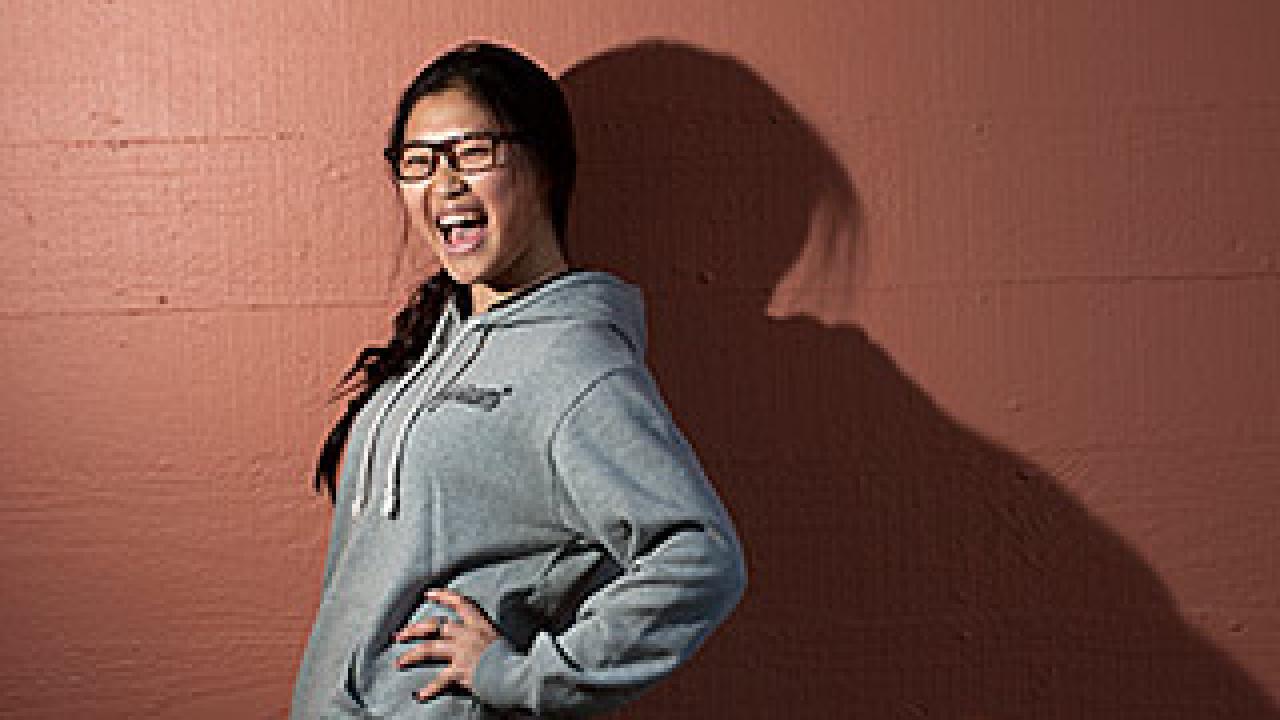Call her Sunny, and she smiles. Big.
The University of California, Davis, freshman from Hong Kong, whose legal name is Jia Meng Li, promises to be one of the first to use a new service that will allow students to choose the first name displayed on their student identification cards, class rosters, grade reports and more.
“This is awesome,” said the life sciences major. “I’m so excited. It’s so cool. All my friends call me Sunny.”
UC Davis is among a leading group of American universities to enact preferred name policies — believed to be especially attractive to students who want their names to reflect their gender identity and to international students who may choose English names for convenience and assimilation.
The UC Davis Police Department is a national leader, too, with a closely related policy that took effect last fall. It affirms that preferred first names may be used on campus, so long as they are not being used for the purposes of misrepresentation. It also instructs officers to interact with people using their preferred names and with respect for gender self-identity and expression.
Both policies are examples of how UC Davis values diversity and is committed to creating a welcoming and inclusive community.
Amy Kautzman of the University Library started to explore how the library and then the university could accommodate the use of preferred names two years ago after an inquiry at a library circulation desk. She continued to champion the effort that later involved multiple campus departments.
“I saw a willingness and sensitivity on this campus to be open and inclusive that truly impressed me,” said the library’s associate director of academic services.
Choosing and using
Beginning March 27, students can set their preferred names through the online directory; the chosen names will then propagate automatically in other campus systems for identification cards, class rosters, grade reports and library interactions. New students have the option of selecting a preferred name upon indicating intent to register.
After inserting their preferred names in the online directory, Li and other continuing students can exchange their AggieCards at no cost during the spring quarter.
Legal first names will continue to be used for student accounts, financial aid, enrollment verification, transcripts and diplomas. Offices that handle these services interact with federal and state agencies that verify student identity using legal names and other information.
What’s in a name?
Li’s parents nicknamed her Sunny for her mother’s last name Yang, which means sun. “Everybody says your name is just you,” Li said. “It will be the first time I can say Sunny as my real name and put it into a document.”
Fuyang Huang is a freshman from Wu Xi, China, but here he goes by Jack, the name he received from his English teacher in primary school. The physics major said it makes everyone more comfortable: People are not struggling to pronounce his Chinese name, and he doesn’t miss the Chinese courtesy of including the last name with the use of a Chinese first name.
Kautzman of the University Library said the use of a preferred name matters deeply to transgender students in their day-to-day interactions. “Too often our students are inadvertently outed by institutions with our unbending rules when we insist on using given names instead of the preferred names.”
Media Resources
Julia Ann Easley, General news (emphasis: business, K-12 outreach, education, law, government and student affairs), 530-752-8248, jaeasley@ucdavis.edu
Amy Kautzman, University Library, (530) 752-2110, kautzman@library.ucdavis.edu
